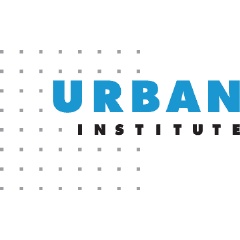The Urban Institute Launches the Mortgage Markets COVID-19 Collaborative
The Urban Institute’s Housing Finance Policy Center (HFPC) announced its formal convening of a diverse group of mortgage industry stakeholders, consumer advocates, and researchers who will share data and policy ideas and develop collaborative solutions to ensure equity, sustainable homeownership, and mortgage market stability in response to the COVID-19 crisis.
The Mortgage Markets COVID-19 Collaborative (MMCC) includes bank and nonbank lenders and servicers, mortgage industry trade groups, private mortgage insurers, consumer advocates and counselors, state housing finance agencies, scholars, and data partners who are addressing key issues that threaten housing market stability and homeownership sustainability.
The COVID-19 public health emergency has the potential to be more disruptive and wide reaching for housing markets than the 2008 economic downturn, with severe long-term ramifications, its national scale, significant unemployment, and the elevated mortgage loss and default projections.
Building on the prior network of experts and stakeholders brought together to form the Mortgage Servicing Collaborative in 2017, HFPC has convened veteran and new collaborators who are concerned about the impact of the new CARES Act legislation, state and federal relief measures, and the introduction of forbearance and eviction and foreclosure moratoriums on the housing finance system and the 48 million homeowners with mortgages.
“The 2008 housing crisis—as well as many disaster-related incidents since then—taught us that coordinated and intentional engagement with industry, housing advocates, and consumer groups is critical to developing and implementing thoughtful, evidence-based, and effective policies and practices that mutually benefit consumers and the underlying systems that support homeownership,” said Alanna McCargo, co–vice president for housing finance policy at the Urban Institute. “Households that were already underrepresented when it comes to homeownership and wealth are more vulnerable when disasters of any kind strike and have historically suffered devastating losses of income, wealth, and housing. These include young homebuyers, Black and Hispanic homeowners, and low- and moderate-income families.”
“Shocks to the economy, tens of millions of jobs lost, small businesses in duress, and long-term recession fears have sent shock waves through the economy, creating uncertainty for communities, homeowners, renters, and anyone who wants to buy a home in the future,” said Laurie Goodman, co–vice president for housing finance policy at the Urban Institute. “Helping the housing market maintain stability and creating options for families to stay in their homes through turbulent times will be the job ahead for the housing industry and policymakers alike.”
The MMCC will work with stakeholders to find common ground in addressing key policy areas. The initial streams of work will include the following:
- standardizing forbearance options and consumer protections
- promoting stability and maintaining liquidity for mortgage servicers through the cycle
- creating uniform standards and communications during the crisis and after
- addressing options and protections for homeowners whose mortgages are held or securitized by private investors or in bank portfolios
- elevating the issue of access to credit for homeowners who wish to refinance and for those who wish to buy a home in the future
The MMCC is one of several housing-related efforts under way at the Urban Institute, where experts across the housing continuum are examining the pandemic’s devastating effects on homeowners and renters, communities of color, and other vulnerable groups. In a separate effort, Urban is also convening stakeholders across the rental ecosystem to explore ways to help renters, landlords, public housing authorities, and communities remain safely sheltered and stable.
About HFPC. HFPC was founded in the wake of the Great Recession to bring evidence to bear on debates about the future of the US housing market. Staffed by nationally recognized experts and cited widely by policymakers and experts across the ideological spectrum, HFPC has become an indispensable source for credible research and commentary on many issues affecting access to credit, homeownership, and affordable housing.
About our funding. The Housing Finance Policy Center (HFPC) was launched with generous support from the Citi Foundation and John D. and Catherine T. MacArthur Foundation. Additional support was provided by The Ford Foundation and The Open Society Foundations. Ongoing support for HFPC is provided by the Housing Finance Innovation Forum, a group of organizations and individuals that support high-quality independent research that informs evidence-based policy development. Funds raised through the Forum provide flexible resources, allowing HFPC to anticipate and respond to emerging policy issues with timely analysis. This funding supports HFPC’s research, outreach and engagement, and general operating activities.
We are grateful to them and to all of our funders, who make it possible for Urban to advance its mission. Funders do not determine research findings or the insights and recommendations of Urban experts. Further information on the Urban Institute’s funding principles is available at urban.org/fundingprinciples.
About the Urban Institute. The nonprofit Urban Institute is a leading research organization dedicated to developing evidence-based insights that improve people’s lives and strengthen communities. For 50 years, Urban has been the trusted source for rigorous analysis of complex social and economic issues; strategic advice to policymakers, philanthropists, and practitioners; and new, promising ideas that expand opportunities for all. Our work inspires effective decisions that advance fairness and enhance the well-being of people and places.
( Press Release Image: https://photos.webwire.com/prmedia/7/258566/258566-1.png )
WebWireID258566
This news content was configured by WebWire editorial staff. Linking is permitted.
News Release Distribution and Press Release Distribution Services Provided by WebWire.
